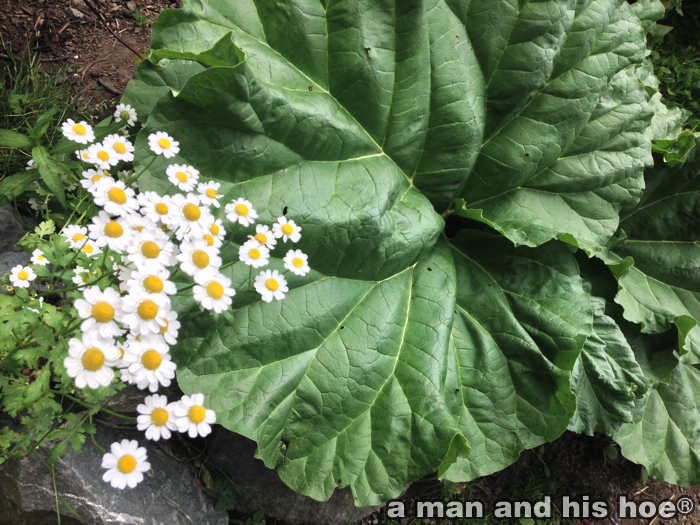
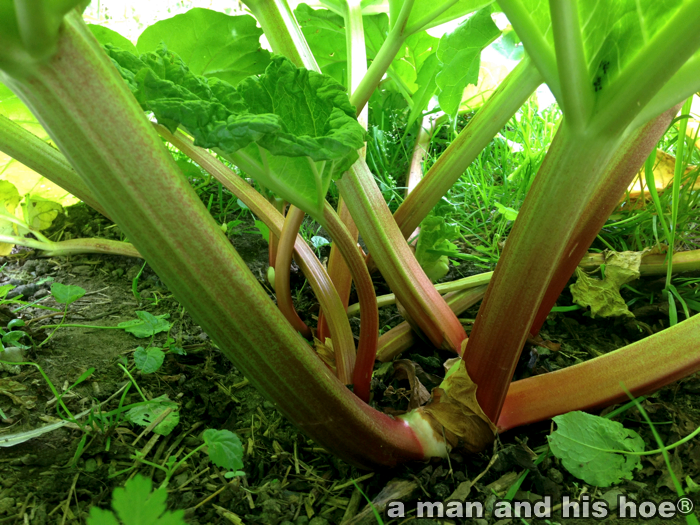
Heading out to take some pictures of carrot flowers, I pause for a moment at one of the rhubarb plants. I find a calm forest underneath their expansive leaves.
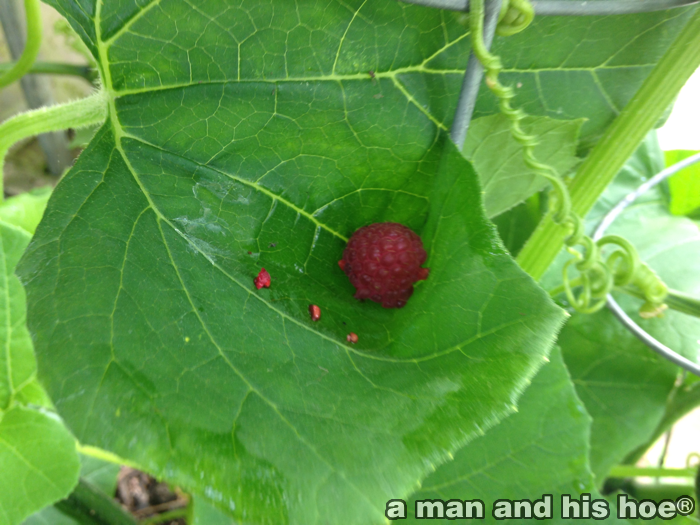
Next to the blooming carrots, a raspberry has fallen into the crevice of a squash leaf.
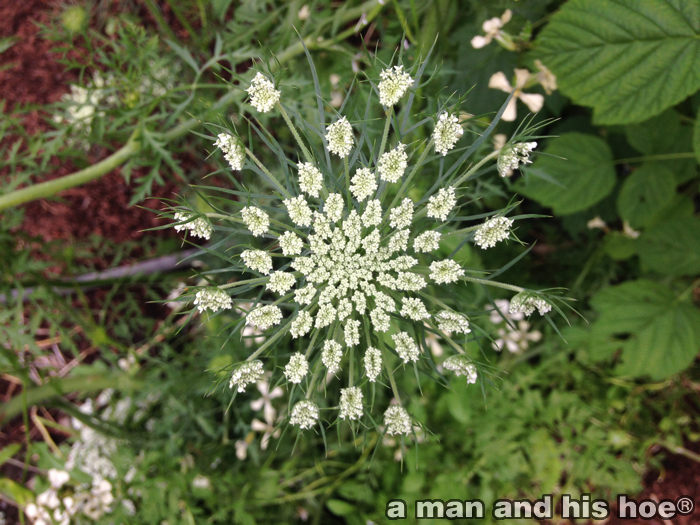
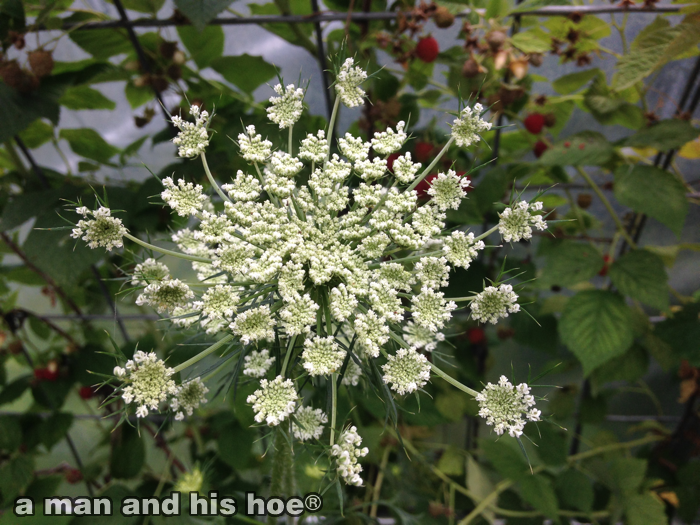
Carrot flowers are spectacular, lacy creations. It would take a human with very nimble fingers hours and hours of delicate work to recreate a flowerhead like this. But carrots seem to do it effortlessly. They send up tall flower stalks and over a period of time these exquisite flowerheads simply unfold. They start out simple and get more and more complicated until they are in full bloom.
The next time you bite into a carrot, take delight in knowing that the seed for that carrot came from a beautiful flower.
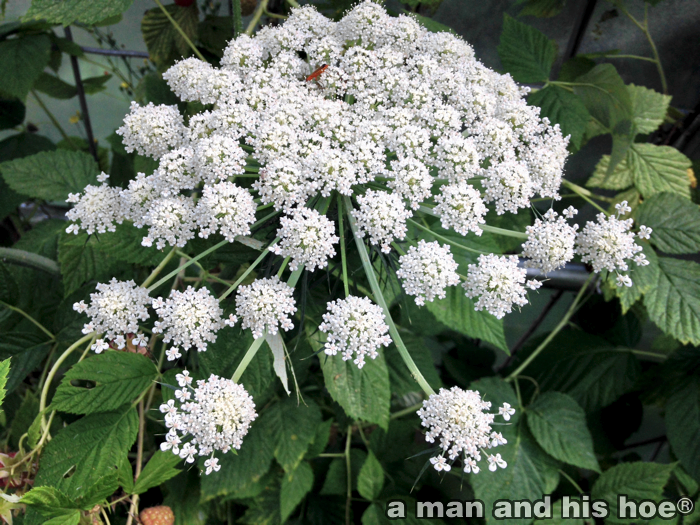
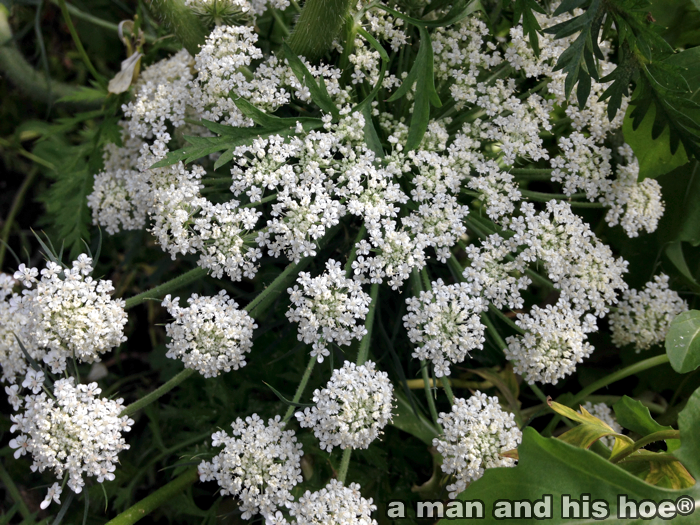
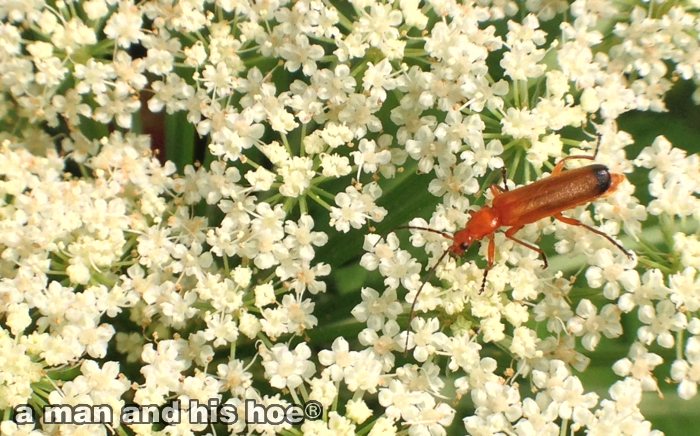
A red soldier beetle feeds on the nectar and pollen of the carrot flowers. Like many beneficial insects, even though this soldier beetle also eats aphids and other insects, it also needs the nectar and pollen of flowers. Which is why it is so important to have plenty of flowers. Instead of using poisons to manage pests, turn to flowers instead, and use the flowers to attract the insects which will manage the pests for you. The bees, the wasps, the other insects, the plants, the field mice, the earthworms and other organisms in the soil will all thank you for keeping your bit of earth free of pesticides.
- The Importance of Herbs
- Biodiversity and Insect Pests
- Soldier Beetle ~ InsectIdentification.org
- Soldier Beetle ~ Wikipedia
- Soldier Beetle Facts: Attract This Bustling Beneficial ~ Mother Earth News
- Red soldier beetle ~ BugGuide.net
- Soldier beetles, leather-winged beetles ~ UC Davis
Leave a Reply
You must be logged in to post a comment.